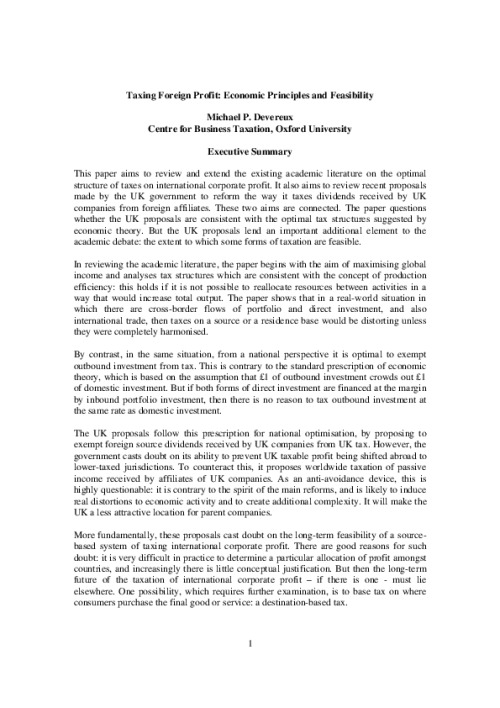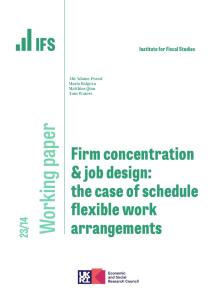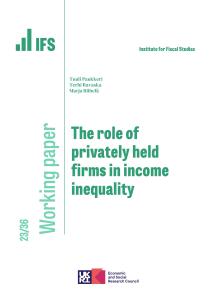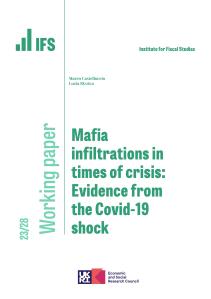<p><p>This paper aims to review and extend the existing academic literature on the optimal structure of taxes on international corporate profit. It also aims to review recent proposals made by the UK government to reform the way it taxes dividends received by UK companies from foreign affiliates. These two aims are connected. The paper questions whether the UK proposals are consistent with the optimal tax structures suggested by economic theory. But the UK proposals lend an important additional element to the academic debate: the extent to which some forms of taxation are feasible. </p><p></p><p>In reviewing the academic literature, the paper begins with the aim of maximising global income and analyses tax structures which are consistent with the concept of production efficiency: this holds if it is not possible to reallocate resources between activities in a way that would increase total output. The paper shows that in a real-world situation in which there are cross-border flows of portfolio and direct investment, and also international trade, then taxes on a source or a residence base would be distorting unless they were completely harmonised. </p><p></p><p>By contrast, in the same situation, from a national perspective it is optimal to exempt outbound investment from tax. This is contrary to the standard prescription of economic theory, which is based on the assumption that £1 of outbound investment crowds out £1 of domestic investment. But if both forms of direct investment are financed at the margin by inbound portfolio investment, then there is no reason to tax outbound investment at the same rate as domestic investment. </p><p></p><p>The UK proposals follow this prescription for national optimisation, by proposing to exempt foreign source dividends received by UK companies from UK tax. However, the government casts doubt on its ability to prevent UK taxable profit being shifted abroad to lower-taxed jurisdictions. To counteract this, it proposes worldwide taxation of passive income received by affiliates of UK companies. As an anti-avoidance device, this is highly questionable: it is contrary to the spirit of the main reforms, and is likely to induce real distortions to economic activity and to create additional complexity. It will make the UK a less attractive location for parent companies. </p><p></p><p>More fundamentally, these proposals cast doubt on the long-term feasibility of a sourcebased system of taxing international corporate profit. There are good reasons for such doubt: it is very difficult in practice to determine a particular allocation of profit amongst countries, and increasingly there is little conceptual justification. But then the long-term future of the taxation of international corporate profit - if there is one - must lie elsewhere. One possibility, which requires further examination, is to base tax on where consumers purchase the final good or service: a destination-based tax.</p></p>










